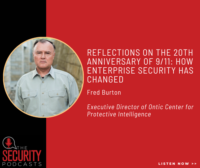Physical
Placed device that impairs train safety systems such as crossing guards and track signals
Read More
The balancing act of campus perimeter security
Keeping higher education environments open and secure is a balancing act that requires security leaders to regularly evaluate risk and the organization’s goals.
September 10, 2021
Mitigating risk through holistic scenario-based training
Scenario training helps bring readiness to life and ensures continuity and resiliency when security or emergency situations arise.
September 9, 2021
Sign-up to receive top management & result-driven techniques in the industry.
Join over 20,000+ industry leaders who receive our premium content.
SIGN UP TODAY!Copyright ©2025. All Rights Reserved BNP Media.
Design, CMS, Hosting & Web Development :: ePublishing










